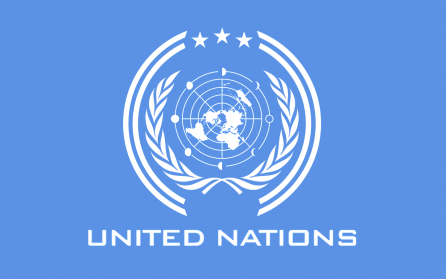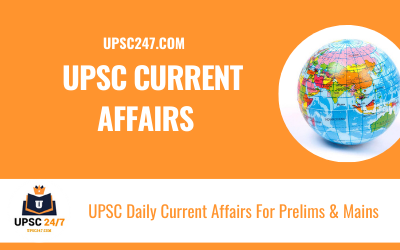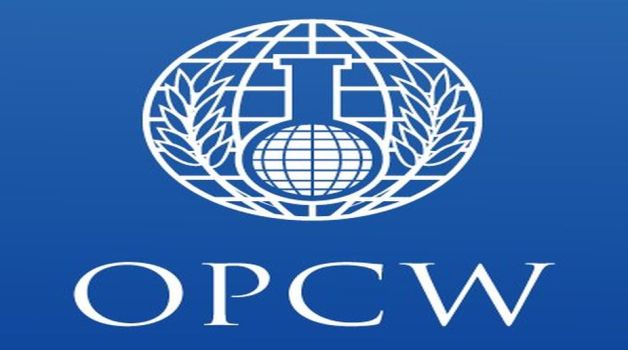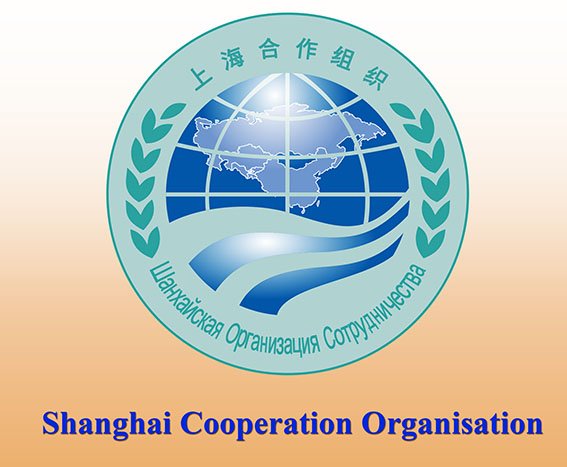United Nations And Its Organs UPSC : The United Nations (UN) is an international organization founded in 1945. It is currently made up of 193 Member States. Its mission and work guided by the purposes and principles contained in its founding Charter and implemented by its various organs and specialised agencies. Its activities include maintaining international peace and security, protecting human rights, delivering humanitarian aid, promoting sustainable development and upholding international law.
- It is an international organization founded in 1945 after the World War II.
- Its charter was signed in San Francisco on June 26, 1945 and came into existence on October 24, 1945 after 51 countries have signed the charter.
- Its predecessor, the League of Nations, created by the Treaty of Versailles in 1919 was disbanded in 1946.
- Its mission is to maintain international peace and security, developing friendly relations among nations and promoting social progress, better living standards and human rights.

United Nations And Its Organs UPSC | Structure | Functioning | Quiz
| Headquarter | New York |
| Official Language | Arabic, Chinese, English, French, Spanish, Russian |
| Members | 193 (Latest Member South Sudan) |
| Secretary General | Antonio Guterres (Portugal) |
| Official Website | united Nations |
History of UN Foundation
- In 1899, the International Peace Conference was held in The Hague
- International Peace Conference Main Objective Was to elaborate instruments for settling crises peacefully, preventing wars and codifying rules of warfare.
- It adopted the Convention for the Pacific Settlement of International Disputes and established the Permanent Court of Arbitration, which began work in 1902. This court was the forerunner of UN International Court of Justice.
- The forerunner of the United Nations was the League of Nations, an organization conceived in circumstances of the First World War, and established in 1919 under the Treaty of Versailles “to promote international cooperation and to achieve peace and security.”
- The International Labour Organization (ILO) was also created in 1919 under the Treaty of Versailles as an affiliated agency of the League.
- The name “United Nations”, coined by United States President Franklin D. Roosevelt.
- A document called The Declaration by United Nations was signed in 1942 by 26 nations, pledging their Governments to continue fighting together against the Axis Powers (Rome-Berlin-Tokyo Axis) and bound them against making a separate peace.
- United Nations Conference on International Organization (1945)
- Conference held in San Francisco (USA), was attended by representatives of 50 countries and signed the United Nations Charter.
- The UN Charter of 1945 is the foundational treaty of the United Nations, as an inter-governmental organization.
About United Nations General Assembly
- Sessions– The assembly meets in Regular session (annually from Sep to Dec), Special session and Emergency Special Session (within 24 hours) at the request of UN security council or majority of members or one-member state if the majority of states concur.
- Appointments by UNGA – It appoints Secretary General of UN based on the recommendations given by Security Council.
- General Assembly elects Non-Permanent members in Security Council and elects Members for Social and Economic Council.
- Along with Security Council, General Assembly elects Judges to International Court of Justice.
- Membership -There are 193 UN member states, each with a vote in the General Assembly.
- The President of the General Assembly is elected each year by assembly to serve a one-year term of office.
- Decisions on important questions, such as those on peace and security, admission of new members and budgetary matters, require a two-thirds majority of the General Assembly.
- Decisions on other questions are by simple majority.
- It has the power to censure states for violating UN Charter principles
- UN budget– United Nation is funded by its member states through compulsory and voluntary contributions.
6 Main Committees: Draft resolutions can be prepared for the General Assembly by its six main committees:
- First Committee (Disarmament and International Security)
- Second Committee (Economic and Financial)
- Third Committee (Social, Humanitarian, and Cultural)
- Fourth Committee (Special Political and Decolonization)
- Fifth Committee (Administrative and Budgetary)
- Sixth Committee (Legal).
Each Member State may be represented by one person on each Main Committee and on any other committee that may be established upon which all Member States have the right to be represented. Member States may also assign advisers, technical advisers, experts or persons of similar status to these committees.
Some Important Law And Resolution By United General Assembly
|
Adoption of Resolution In General Assembly
- Resolution in GA can be adopted in two ways i.e reaching consensus among member states and by voting on the resolution.
- Consensus– All member states have agreed to adopt the text of a draft resolution without taking a vote.
- The viewpoint of every member countries is taken into consideration.
- Consensus is not reached, even if just one Member State requests a vote
- Voting -It need to get a simple majority to agree on the text of a resolution.
United Nations And Its Organs UPSC : United Nations Security Council
- It has primary responsibility for the maintenance of International peace and security.
- The council has 15 members: 5 Permanent – US, UK, Russia, France & China and 10 members elected by the General Assembly for 2-year terms.
- The main criterion for eligibility is contribution “to the maintenance of international peace and security”, often defined by financial or troop contributions to peacekeeping operations or leadership on matters of regional security.
- All the members have one vote and permanent members have veto power
- While other organs of the UN can only make recommendations to member states, the Security Council has the power to make binding decisions on member states.
- Decisions on procedural matters should have vote of at least 9 of the 15 members and decision on substantive matters require nine votes and the absence of negative vote by any of the 5 permanent members.
- Veto powers of P5 countries have been used most frequently by Russia, blocking more than 100 resolutions since the council‟s founding.
- The presidency of the Security Council rotates alphabetically among 15 members every month
- G4 Nations– 4 countries bids for permanent seats in UNSC. They are Brazil, Germany, India, and Japan
Equitable geographical distribution is also taken in to account for membership
- African Group (3)
- AsiaPacific Group (2)
- Latin American and Caribbean Group (2)
- Western European and Others Groups (WEOG) (2)
- Eastern European Group (1)
Arab states are given 1 seat alternately drawn from either Africa‟s quota or Asia‟s by informal agreement. Turkey and Israel, which has never served on the council, is represented in WEOG.
Current non-permanent members (with end of term) are
- Côte d‟Ivoire (2019)
- Equatorial Guinea (2019)
- Kuwait (2019)
- Peru (2019)
- Poland (2019)
- Belgium (2020)
- Dominican Republic (2020)
- Germany (2020)
- Indonesia (2020)
- South Africa (2020)
Shanghai Cooperation Organisation UPSC ( SCO ) | Members | Functions |
Uniting for Consensus (Coffee Club)
These are group of countries who are opposing the expansion of permanent seats in the UNSC under the leadership of Italy. Members Of The group Are Following
- Italy
- Spain
- Malta
- San Marino
- Pakistan
- South Korea
- Canada, Mexico
- Argentina
- Colombia
- Turkey
Proposed Reforms in UNSC
The demands for reform of the UNSC is based on five key issues:
- Categories of membership (permanent, non-permanent).
- The question of the veto held by the five permanent members.
- Regional representation.
- The size of an enlarged Council and its working methods.
- The relationship between Security Council and General Assembly
Notably, any reform of the Security Council would require the agreement of at least two-thirds of UN member states. Importantly, the agreement of all the permanent members of the UNSC enjoying the veto right is also required. And We All Know That China Is a Naughty Boy Who Will Not Allow India Entry In UNSC.
- UNSC has recently adopted a Resolution 2427 aimed at a framework for mainstreaming protection, rights, well-being and empowerment of children throughout the conflict cycle.
United Nations And Its Organs UPSC : UN Economic & Social Council
- It is the principal organ that guides sustainable development policies and coordinates the activities of several
- UN units and organisations working on development and social and economic issues.
- It is the principle body for the implementation of internationally agreed development goals.
- It has 54 members, which are elected by the General Assembly for a three-year term.
- Seats in the council are allocated based on geographical representation.11 of them are allotted to Asian states.
- For the nations to be the elected as members of ECOSOC for a three-year term, it needs 2/3rdmajority of UN General Assembly votes.
- Each member of the council has one vote and generally voting in the council is by simple majority.
- The president is elected for a one-year term.
United Nations And Its Organs UPSC : UN Boadies Under ECOSOC:
Specialized agencies
| Functional commissions
|
Regional Commissions
| Standing Committees
|
Expert bodies composed of governmental experts
| Ad hoc bodies
|
Expert bodies composed of members serving in their personal capacity
| Other Important Bodies
|
United Nations And Its Organs UPSC: Secretariat
- It undertakes the day-to-day work of the UN, administering the programmes and policies of the organization.
It is headed by the Secretary-General, assisted by a staff of international civil servants worldwide.
International Court of Justice
- It is the principal judicial organ of the United Nations also called the “World Court”.
- It is seated at the Peace Palace, Hague (Netherlands), and the only principal organ of UN to be not located in New York.
- It settles legal disputes between states and gives advisory opinions to the UN and its specialized agencies.
- It hears cases related to war crimes, illegal state interference, ethnic cleansing, and other issues.
- The Court can only hear a dispute when requested to do so by one or more States. It cannot deal with a dispute of its own motion.
- It is presidedover by 15 judges elected to 9 year terms by the UNGA and the UNSCl from a list of people nominated by the national groups in the Permanent Court of Arbitration.
- A candidate needs to get an absolute majority in both the chambers i.e. the UNGA and the UNSC.
- 5 judges areelectedevery 3 years to ensure continuity within the court and are eligible for re-election.
- No two judges can be the nationals of the same country.
- The President and Vice-President are elected by secret ballot to hold office for 3 years.
- The P5 members of the UNSC always have a judge on the Court.
- The exception was China, which did not have a judge on the Court from 1967 to 1985 because it did not put forward a candidate.
- Judges may deliver joint judgments or give their own separate opinions.
- The Court settles legal disputes between nations only and not between individuals, organizations and private enterprises in accordance with international law.
Of the 15 judges, the composition is mandated to be as follows –
- 3 from Africa
- 2 from Latin America and the Caribbean
- 3 from Asia
- 5 from Western Europe and other states
- 2 from Eastern Europe
India and ICJ – An Indian Justice Dalveer Bhandari was re-elected as a judge to the ICJ.
Trusteeship Council
- It was formed to provide international supervision for 11 Trust Territories that had been placed under the administration of Member States, and to prepare the territories for self-government and independence.
- By 1994, all Trust Territories had attained self-government or independence, with the last nation being Palau.
- So, UN suspended its operation on 1994, and it continues to exist only on paper.
- By a resolution adopted in May 1994, the Council amended its rules of procedure to drop the obligation to meet annually and agreed to meet as occasion required by its decision or the decision of its President, or at the request of a majority of its members or the General Assembly or the Security Council.
- Its future role and existence remain uncertain.
- By 1994, all Trust Territories had attained self-government or independence. The Trusteeship Council suspended operation on 1 November 1994.



